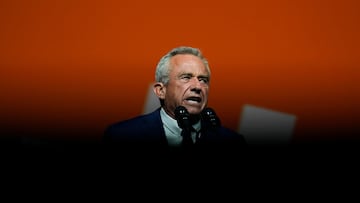Why has RFK Jr. been disqualified from appearing on New York’s general election ballot?
The independent candidate seemed to have a promising campaign but it has been derailed over the space of two months.


Robert F. Kennedy Jr. has been disqualified from appearing on New York’s general election ballot following a court ruling that found he falsely claimed residency on his nominating petitions. The decision, made by Judge Christina Ryba, invalidated Kennedy’s candidacy on the grounds that his stated New York address was not a legitimate residence but merely a means to maintain voter registration and political standing in the state. Kennedy, who resides in California, had used a friend’s address in Westchester County, New York, which the judge termed a “sham”.
The lawsuit against Kennedy was spearheaded by Clear Choice Action, a Democrat-aligned super PAC, which argued that Kennedy’s false residency claim was an intentional attempt to mislead election officials. The ruling could have broader implications, potentially affecting Kennedy’s eligibility in other states where he used the same New York address to gather signatures.
Kennedy has vowed to appeal the decision, criticizing it as a partisan attack.
Floundering campaign
Related stories
Kennedy’s campaign, which once showed promise due to his famous name and a dedicated support base, has been struggling in recent months. Initially, he appeared as a formidable contender, polling in the double digits and causing concern for both major political parties. His polling numbers have declined since the Biden-Trump debate, of which he was not invited, with recent surveys showing him at around 5% among voters in key swing states.
If that debate wasn't insane enough for you, RFK Jr. spent the evening doing a competing live stream where he spliced himself into the feed and took separate questions from a guy that looks like he killed a moderator and stole his clothes pic.twitter.com/AQHAnjIRmi
— catturd2.bsky.social (@thetomzone) June 28, 2024
Despite collecting enough signatures to run in 45 states, the legal hurdles and negative publicity surrounding some bizarre claims have cast a shadow over his presidential bid.
Complete your personal details to comment